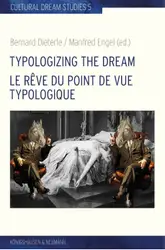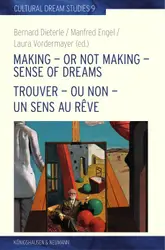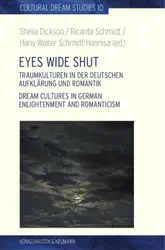There is nothing like a firmly established typology of dreams – simply because the taxonomies on which existing typologies are based vary widely: They can be oneirocritical, thematic, or based on dreaming characters or their responses, on narratological functions, etc. The essays in this volume will discuss a broad range of dream types, with a special focus on nightmares and erotic, funny, indigenous and children’s dreams. Examples are taken from a great variety of cultures and historical periods. Their authors and artists include: Akinari, Barrie, Baudelaire, Benjamin, Black Elk, Buñuel, Burroughs, W. Busch, Calvino, Cantilo, Cao Xueqin, Cardano, Carroll, Coogler, Corkran, Cortázar, Crébillon fils, Dalí, Eco, Ende, Foer, Fuseli, Garnier, Gatore, Grévin, Grünbein, Guo Moruo, Hauptmann, Hawthorne, Hebbel, Heine, E.T.A. Hoffmann, Huysmans, Ilboudo, Ilibagiza, Kafka, F. Lang, Leiris, Li Yu, Malerba, Mizoguchi, Morgenstern, Mussorgsky, Nodier, Nolan, Okopenko, Pushkin, Radcliffe, Rimbaud, Robison, Schafer, Schiller, Schnitzler, Schwarz-Bart, P.B. Shelley, Soqluman, Storm, Szittya, Tamapima, Tchaikovsky, D.M. Thomas, Tristan L’Hermite, Valenzuela, Vava, Yourcenar, Yu Dafu, and many others.
Cultural Dream Studies / Kulturwissenschaftliche Traum-Studien
Bokserier • 3 bøker


